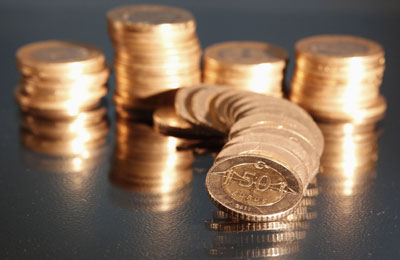
Turkey raises interest rates to stem lira outflows
Istanbul, July 23, 2013
Turkey's central bank announced a modest hike in interest rates on Tuesday and signalled it would fight further falls in the lira by tightening liquidity rather than eat into its foreign exchange reserves.
The move - a rise in the overnight lending rate to 7.25 percent from 6.5 percent - was a reaction to capital outflows that have knocked the lira down as much as 9 percent against the dollar over the past few months.
Uncertainty over the continuation of the U.S. Federal Reserve's bond-buying programme has hit emerging markets in general. Turkish investments were also shaken by demonstrations last month against Prime Minister Tayyip Erdogan's government.
The bank said it would no longer fund primary dealers at below its overnight lending rate on days when it implements additional tightening, allowing it to push money market rates up to 7.25 percent when needed to further defend the lira.
"The central bank is telling markets that it is now ready to act whenever it deems necessary through additional monetary tightening," said Simon Quijano-Evans, head of emerging market research at Commerzbank.
"That essentially boils down to a rates-driven policy to protect the lira rather than losing more forex reserves."
Erdogan has long championed low interest rates, fearing an economic slowdown ahead of elections. But the central bank has already burned through $6.6 billion, or about 15 percent of estimated disposable reserves, this year to try to defend the lira, a policy which has had limited success and which it cannot pursue indefinitely.
It said it would no longer sell foreign exchange on days when it was funding the market at above its policy rate, signalling an end to the series of forex auctions which have eaten away at its disposable reserves.
It kept its one-week repo policy rate at 4.5 percent and its borrowing rate at 3.5 percent.
There was a muted response from markets, with the lira firming to 1.9100 against the dollar from 1.9153 before the announcement. The 10-year bond yield inched up to 8.71 percent from 8.69 percent.
BARE MINIMUM
Economists said the central bank had done the bare minimum with Tuesday's rate hike, caught between the will of a powerful prime minister who has blamed a "high interest rate lobby" for seeking to undermine Turkey's prospects and the reality of a gaping current account deficit and high borrowing needs.
"I think an opportunity was missed. It is hard to see Turkish markets rallying much on the back of this, and I think there is a danger that it will be a case of 'buy the rumour, sell the fact'," said Timothy Ash, head of emerging markets research at Standard Bank.
"The reality is that the current account and external financing requirements are way too large ... The Turkish central bank needed to work harder to force rebalancing and close the external financing equation sooner rather than later."
Speaking a day after Erdogan met his economy and finance ministers, Basci said last week a "measured step" was on the cards to widen the interest rate corridor the bank uses to control liquidity conditions, widely interpreted to mean a hike in its overnight lending rate.
Deputy Prime Minister Ali Babacan has repeatedly said the central bank is fully independent, but the timing of Basci's announcement left some with the impression he had been emboldened to act after receiving the government's blessing.
Turkey follows other emerging markets in tightening monetary policy. India and Nigeria took steps to support their currencies on Tuesday and last week India joined Brazil and Indonesia in raising some of its interest rates to try to prevent a currency rout.
Reassurances from Fed Chairman Ben Bernanke last week over the pace of the U.S. central bank's plans to withdraw monetary stimulus have boosted sentiment in emerging markets, taking some pressure off Turkey's central bank.
Raising the overnight lending rate increases the real interest rate on lira assets and makes them more attractive to foreign investors, supporting the currency. Whether that in itself will be enough to calm nerves remains to be seen.
"Even with this rate hike we expect the central bank to tread carefully: Growth is still fragile and PM Erdogan will not be too happy with the central bank quenching growth, considering the upcoming elections," said Nordea Bank analyst Annika Lindblad. – Reuters







